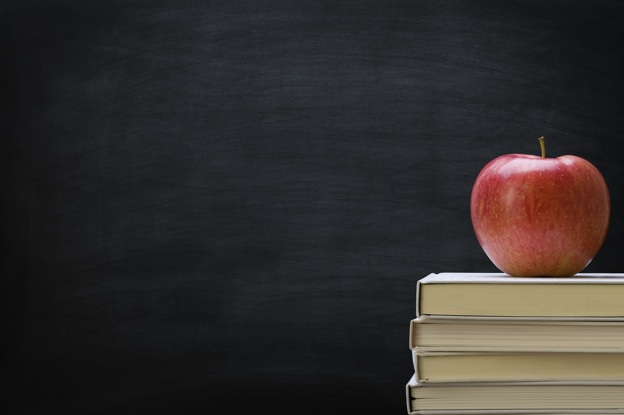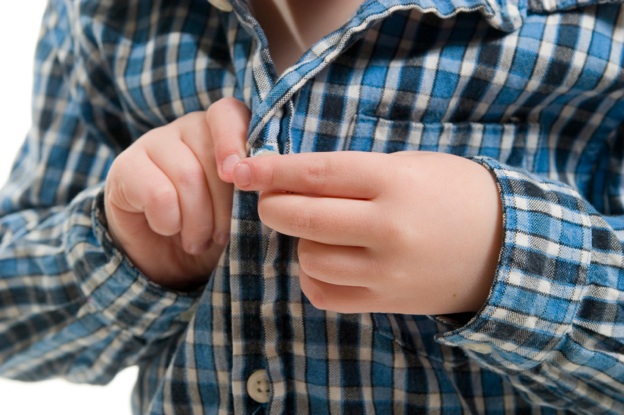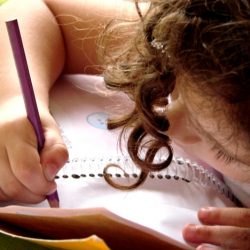SingaporeMotherhood | Preschooler & Up
April 2012
Preparing Your Child For Primary One

The transition from kindergarten to primary school is a big one. Apart from learning subjects at a deeper level, your child has to adjust to a new environment, follow a different routine and exercise a greater degree of independence. If you have missed the seminar on “Preparing one’s child for primary school” at the recent MOE ExCEL Fest 2012, read on to find out what Mdm Rita Raj Lal, Principal of Zhenghua Primary School and Mrs Aw Ai Ling, Principal of Gan Eng Seng Primary School shared. We also interviewed some mothers to find out how they helped their children through this transition.
[banner][/banner]
What parents can expect
The aims of primary education are to build a strong foundation in numeracy and literacy in the early years of education and to nurture the whole child in preparation for the future. In addition to equipping the students with content knowledge, schools now seek to help students develop skills and values that will help them to thrive in a fast changing and globalised world.
Parents can thus expect a different teaching approach compared to what they had gone through during their school days. Mdm Rita explained that “children learn best when they see books come to life.” Therefore, teachers now employ active and creative learning strategies in the classroom.
Students may be asked to perform investigative tasks and experiments or role-play. Educational trips and hands-on activities also provide experiential learning opportunities. Through project work, students learn to work in teams and communicate their thoughts and ideas. It is hoped that through these experiences, students will develop into confident children and self-directed learners.
For the child to fully benefit from such an education, Mdm Rita stressed the importance of parent-school partnership. “Parents need to be present and involved in their child’s education. When your child sees that you are interested in his learning, he will be interested in his learning too.”
In order to balance the teaching of knowledge with skills and values, schools have in place a Programme for Active Learning (PAL). Mrs Aw shared how the PAL programme gives her students exposure to non-academic experiences such as sports, games, performing and visual arts. Through such activities, students have a safe learning environment to discover their skills, forge friendships and build self-confidence.
At a higher level, students are encouraged to join Co-Curricular Activities (CCAs) as these activities help to develop skills such as self-awareness, self-management, social awareness, relationship management and responsible decision making.
Mdm Rita stressed the importance of providing a holistic education for the total development of the child. She observed, “Since CCAs are not compulsory, some parents do not want their children to ‘waste time’. However, CCAs help the child to learn and to see value in what they are doing, to appreciate life and take the learning journey in a way that will help them to grow.”
Preparing your pre-schooler for the transition
Mdm Rita shared tips on how parents can get their pre-schoolers ready for Primary One:
• Talk to your child about the new routines. For example, school hours will be longer and your child would not be playing all the time.
• Help your child to understand new expectations, such as being punctual for school as well as keeping quiet when the teacher is speaking and during silent reading sessions.
• Excite your child with new experiences, such as learning new things and making new friends.
• Avoid scaring your child by saying things like “the teacher will punish you if you are naughty”.
• Attend the school orientation with your child or show him pictures of his new school. As the orientation is usually held during the December holidays before the start of Primary One, parents are advised to schedule any travel plans around it.
• Ensure that your child is toilet-trained as teachers no longer accompany students to the toilet.
• Teach your child how to buy his own food from the canteen.
• Teach your child to put on his uniform by himself, and to handle buttons and zips as he will need to change in and out of his PE attire in school.
• Label your child’s belongings and teach him to be responsible for his things because young children have a tendency to lose things.
• If your child is in the morning session, train him to wake up early. If he is in the afternoon session, ease him out of his afternoon nap at least three months before starting Primary One.
You may also find more tips at the MOE website.
Support for the Primary One student
Schools have in place several programmes to help the child settle in. In addition to an orientation programme, many schools have a buddy system whereby an older child is assigned to help the Primary One student to buy food from the canteen during recess over the first few days of school.
As students enter the school with different numeracy and literacy abilities, schools also have Learning Support Programs (LSP) for students who are weak in English or Mathematics.
Such students are identified through screening tests conducted upon entry to Primary One, and these students will receive one period of specialised teaching per day. Mdm Rita assures parents that they need not be unduly worried should their child be selected for this programme as early identification and intervention can help children to overcome learning disabilities. The children will also cover the same syllabus as their peers.
Schools also employ various Strategies to Ensure more Attention to Individual Pupils (SEAIP). In Gan Eng Seng Primary School, form teachers have one-to-one interaction time with pupils twice a year, Mrs Aw shared. Through these sharing sessions, student journals and e-mails, teachers can build relationships with their pupils, identify their needs, and nurture their strengths.
Helping your child on his learning journey
As an educator with more than 28 years of experience, and a mother of two grown children, Mdm Rita shared how parents can play a supportive role in their child’s education, “Education shouldn’t be about getting full marks. Instead, parents can appreciate and praise the child’s effort and avoid comparing him with others. Encourage him, especially when he’s disheartened, regardless of results. Focus on his strengths and help him to develop them by setting realistic and achievable goals.”
To help the child ease into primary school, Mdm Rita recommends that parents do the following: “Develop a routine for school and homework, and supervise your child. Create a conducive learning environment and teach your child to be self-disciplined.”
She also suggests that parents talk to their child about their day in school and be alert to their needs and fears. Above all, Mdm Rita appeals, “Don’t be so fixated with comparing your child’s performance with others. Be excited and your child will catch your excitement about going to school. Be curious with your child, let him enjoy his learning journey and enjoy the journey with him.”
Parents’ experiences
Mrs H. Palupi, a former accounting manager, and Mrs K. Tan, an ex-teacher, are both stay-home mothers in their 30s with sons in Primary Two. They share how they helped their sons with the transition.
How did you prepare your son academically before Primary One?
Mrs Palupi: I taught him easy maths sums and tried to instil a love for reading. Reading is important because one has to read a lot in Primary One. Even if a child cannot read well, he must at least enjoy reading and get used to it.
Mrs Tan: I looked at the Primary One textbooks and covered a bit of the syllabus with him. I also reinforced what was taught in preschool and read with him.
What skills did you teach your son in preparation for Primary One?
Mrs Palupi: I trained him to be independent in going to the toilet and dressing up. I taught him the simple use of money and how to get change after paying for something. I also trained him to eat vegetables and fruits and to choose his food wisely to get proper nutrition.
Mrs Tan: I thought him basic life skills like buying things and going to the toilet.
How did you help your son adjust during Primary One?
Mrs Palupi: I went through his school bag with him daily to check for any homework as I can’t expect a Primary One child to be organised and write everything down. Since primary school is a big adjustment, I tried to balance work and play and ensure that he has daily play time either at the playground or swimming pool.
Mrs Tan: I talked to him about dealing with bullies and encouraged him to keep an open communication with me, although I let him learn to settle problems by himself.
All content from this article, including images, cannot be reproduced without credits or written permission from SingaporeMotherhood.
Follow us on Facebook, Instagram, and Telegram for the latest article and promotion updates.







